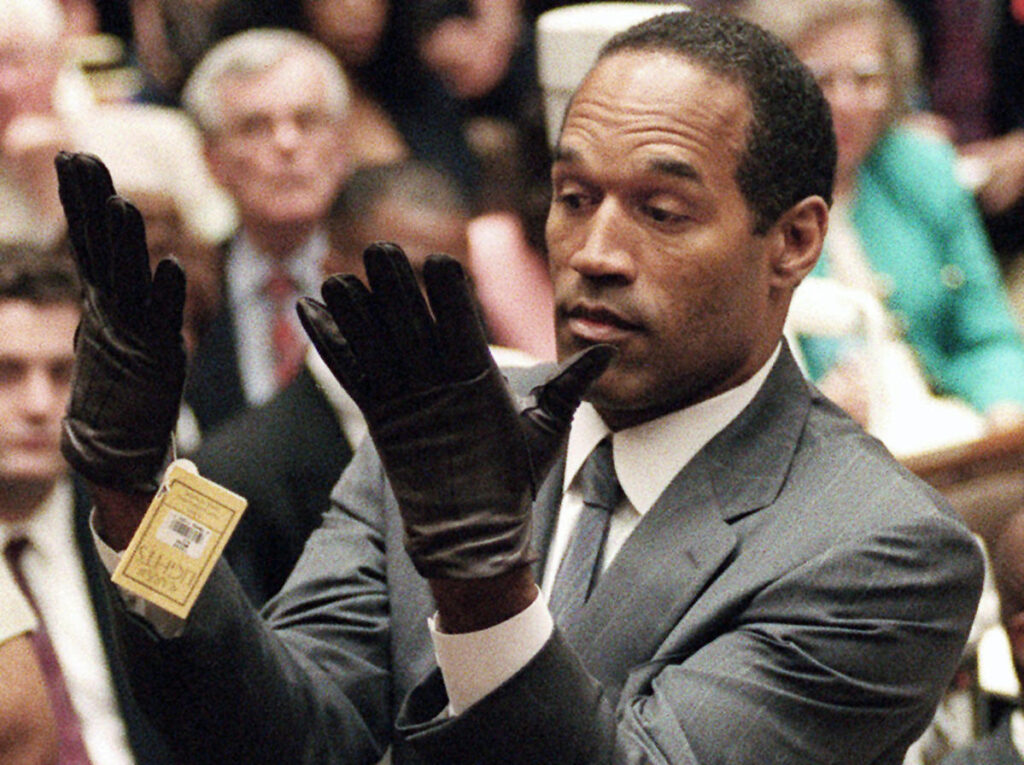At 1:00 PM ET on October 3, 1995, America ceased its orbit.
From living rooms to break rooms to classrooms, people crowd around televisions and radios to remember Orenthal James, Hall of Famer, charismatic television personality, film actor, and double murder defendant. -I learned Simpson's fate.
In June 1994, approximately 95 million people watched a low-speed chase on a Los Angeles freeway, five days after the bodies of Simpson's ex-wife Nicole Brown Simpson and her friend Ron Goldman were discovered in a gruesome murder. I paid attention to. The view outside her Brentwood condo. Helicopter footage pre-empted broadcasts on nearly every channel and even split the screen during the NBA Finals.
After nine months of acrimonious, contentious, racially and emotionally charged trials that made stars, changed society, formed scabs, and divided opinion, by the time the verdict was reached, perhaps the largest An estimated 150 million Americans watched on television. It was always so large that it was impossible to calculate it accurately.
Among them was President Bill Clinton, who watched with his staff in the front room of the Oval Office and issued a statement calling for respect for the justice system.
Simpson was found not guilty, sparking anger and debate among many who still thought he got away with murder 28 and a half years later. Simpson's family announced that he had died of cancer at the age of 76, including his nine-year prison sentence for armed robbery and kidnapping convictions.
It's almost impossible to fathom how big O.J. Simpson's case was, how closely his trial was followed, and how powerful his acquittal (in every imaginable sense) was. In a country with currently fragmented attention spans, something this big may never exist again.
Simpson was all-encompassing. He changed the medium. Cable news, in particular, became the must-see show every night, but it also increased the popularity and even credibility of tabloids like the National Enquirer that recorded the scoops.
It launched a career. We introduced DNA evidence to the public, even if not everyone was fully aware of it. This raised awareness and created debate about police and prosecutorial conduct regarding African Americans, particularly within the Los Angeles Police Department.
Discussions about class, privilege, wealth and two judicial systems all centered around a man who has moved through life as smoothly as he did as a former NFL defenseman.
OJ has become everything you want.
He adopted the catchphrase, “If it doesn't fit, you must acquit.'' It made famous Witnesses like Mark Fuhrman, Cato Kaelin, and Henry Lee.
It turned the lawyer into a celebrity. Prosecutor Marcia Clark has become an unlikely fashion and hairstyle influencer. Johnny Cochran of O.J.'s “Dream Team” became known as the best lawyer in the country.
Then there was a defense attorney named Robert Kardashian, a friend of O.J.'s wife Kris, who used his media, scandal, and marketing knowledge to later build his entire family into a multibillion-dollar business in fashion and cosmetics. It turned into a mega star, and even more strange ripples spread. Pond of OJ influence.
The attention to this case was overwhelming, with daily onslaughts from all things O.J. At one point during the trial, Judge Lance Ito met with CNN host Larry King and blurred the lines. . Among the vast amount of books and documentaries written and made into films was Simpson's own book titled “If I Did It.”
There were times when the trial was heart-wrenching and compelling. There was too much focus on the accused and not enough on the victim, too many punchlines, and too little respect for the evil of the violence. It was a sideshow, an American melodrama, holding up a mirror to all that was good and bad about this country.
People focused on the bloody gloves, the barking dog, the “Columbian necklace” and Bruno Mari shoes, domestic violence and jury bias.
The trial was called the “Trial of the Century,” but it was much more than that. There has never been anything like that since. That may not even be possible.
O.J. was released that day, a decision that still causes bitter divisions, often resulting in cheers and cries along America's racial cleavages. He was later found responsible for Brown and Goldman's deaths in a civil court, but was spared most of the $33.5 million because his NFL pension was protected. He mainly played golf and claimed to be looking for the “real culprit”.
In 2008, he was convicted in Nevada of, among other things, attempting to forcibly repossess his pants (a valuable item on the souvenir market, another sign of the absurdity of the case). received. The law sentenced him to nine years in prison and imposed certain penalties. It was another ring in the circus.
Upon his release, he chronicled his days on social media playing golf and fantasy football in Las Vegas. He was heckled relentlessly, but he never reacted in a way that seemed to notice or bother him. He spent the last hours of his life fighting cancer and finally entered hospice.
O.J. Simpson's story is at once simple and complex, overwhelming and simple at the same time. Most often it was tragic. For Brown and Goldman and their families and friends. For OJ, he was a man with great talent and promise, but his life descended into crime and futility.
And also for America, who is so obsessed with him and his life that even after all these years, she can't look away.


